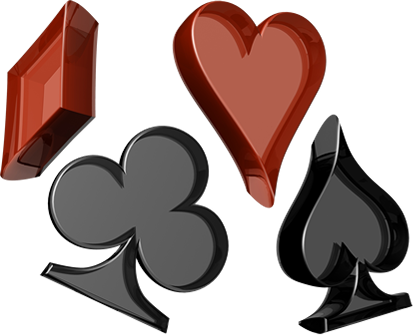How to Avoid Going on Tilt
Going on tilt in poker is letting your emotions cloud your judgment. Losing hands happen in Texas hold'em, whether through your own fault or through a bad beat. To help players cope and assure they don't chase money at the poker table, here are several tips on how to avoid emotional play in Texas holdem.
Avoid Distractions
We live in the Age of Distractions. If you can limit the distractions that are under your power to limit, you'll have better concentration than most people at the table. Turn off all electronics, except possibly the light music. Don't text or email during the game. Don't talk on the phone, even with a headset. If you listen to music, avoid music with lyrics, because any random word can distract. Let the other residents know this is your private time. Once you do these things, you become better focused.
Take a Break
Be prepared to walk away at any time. Anything becomes a grind after a while. Sitting in one spot isn't good for your health. You get tired. Your mind gets tired. Stand up, walk out, and stretch your legs. Take a break. Clear your head. Think about something else for a few minutes. Take care of all the human needs, like food and drink. Then come back refreshed and reenergized.
Play Shorter Sessions
You might see this is an addendum to the last point, but the previous tip involved long sessions. If your emotions get out of control over a long day of playing Texas hold'em, then play short sessions instead.
Use Bankroll Strategies
Follow some sort of bankroll strategy and don't chase after lost money. Focus on the mathematics of that strategy instead of the math of bad beats. If you play in a live environment, don't take all the money in your bankroll to the game. Don't give yourself the temptation to use the whole bankroll at once.
Analyze Past Sessions
While talking about the math side of your gambling hobby, remember to analyze your playing. Most online casinos save detailed hand histories. This is one of the great advantages to playing on the Internet. Don't work from memory when trying to reconstruct how the game played out. It's been proven time and again, memories are unreliable. If you can look at a detailed hand history to see how hands played out and why, you'll learn how to avoid the mistakes you made. Don't make excuses. Learn from those mistakes and improve. Sometimes, you'll learn you played correctly and the cards didn't go your way. When this happens, understand that every player who ever played face the same bad luck at some time. Losing teams in sports always blame a bad call from the referees. Winning teams get bad calls, too, but they're good enough to overcome them. The same concept applies to bad luck in poker: the good players find a way to fight through it.
Have Fun
Remember, online poker is a game. You play to enjoy the game. The cards aren't against you. In an offline situation, the dealer isn't against you. The players are against you, but they're supposed to be. The best way to show the smart-alec who keeps taunting you is to beat the guy at poker.
Don't take yourself too seriously. Don't let too much of your identity form out of your Texas hold'em success. Laugh at yourself sometimes. If you have a proper bankroll and this money won't be missed (that much), no harm is being done to you. Don't let your ego get in the way of things.

